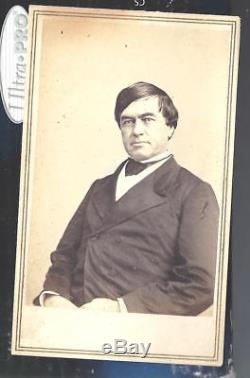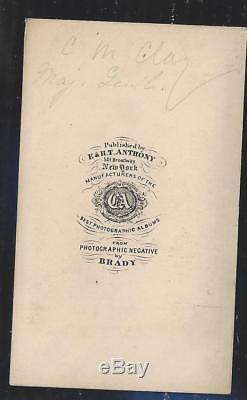
- Homepage
- Conflict
- Format
- Albumen (3)
- Ambrotype (32)
- Cabinet Card (66)
- Cdv (5)
- Crayon Portrait (2)
- Daguerreotype (27)
- Hardcover (14)
- Multi-formats (6)
- Negative Photo Image (4)
- Photograph (6)
- Ruby Ambrotype (3)
- Sixth Plate (2)
- Small (2)
- Stereoview (2)
- Tin Type (8)
- Tin Type Photo (2)
- Tintype (156)
- Tintype Photograph (6)
- Unknown (9)
- ... (6633)
- Photo Type
- Album (9)
- Albumen (14)
- Ambrotype (198)
- Cabinet Photo (67)
- Cdv (476)
- Cdv & Tintype (6)
- Cdvs & Tintypes (7)
- Daguerreotype (84)
- Gelatin Silver (13)
- Mixed (3)
- Negative (10)
- Negative Photo (4)
- Opalotype (4)
- Other (4)
- Photograph (4)
- Snapshot (3)
- Stereoview (23)
- Tintype (524)
- Tintypes (3)
- Unknown (12)
- ... (5520)
- Subject
- Children & Infants (21)
- Civil War (31)
- Civil War Soldier (12)
- Ethnic (17)
- Family (23)
- Fashion & Costumes (10)
- Figures & Portraits (149)
- Genealogy (10)
- Historic & Vintage (90)
- History (23)
- Men (59)
- Men, Civil War (54)
- Men, Military (39)
- Military (96)
- Military & Political (575)
- Military & War (14)
- Portrait (15)
- Portraits (14)
- Soldier (12)
- Women (19)
- ... (5705)
- Theme
- Americana (41)
- Americana, Fashion (18)
- Americana, Militaria (17)
- Antique (8)
- Art (7)
- Civil War (14)
- Conflicts & Wars (6)
- Fashion (19)
- History (43)
- History, Militaria (10)
- Love (6)
- Militaria (1028)
- Patriotic (7)
- People (21)
- Politics (14)
- Portrait (66)
- Portrait, Man (22)
- Stamps (22)
- Travel (6)
- Victorian (7)
- ... (5606)
- Type
- Belt Buckle (3)
- Carte De Visite (2)
- Cdv (3)
- Cdv Photograph (14)
- Daguerreotype (3)
- Full Cdv Photo Album (2)
- Illustrated Book (3)
- Negative Film Photo (4)
- Pendant (3)
- Photo Album (3)
- Photo Frame (2)
- Photograph (1343)
- Photograph Album (49)
- Picture Book (8)
- Picture Frames (8)
- Print (3)
- Real Photo (rppc) (10)
- Tintype (9)
- Tintype Photo (4)
- ... (5512)
Civil War CDV of general and Congressman Cassius Clay of Kentucky




Cassius Marcellus Clay (/kæs mrsls/; October 19, 1810 July 22, 1903), nicknamed the "Lion of White Hall", was a Kentucky planter, politician, and emancipationist who worked for the abolition of slavery. He freed the slaves that were handed down as his inheritance from his father.
Those freed slaves were allowed to stay and were paid a wage. He was appointed by President Abraham Lincoln as the United States minister to Russia during the American Civil War, and is credited with gaining Russian support for the Union. Cassius Clay was a pioneer as an early southern planter who became a prominent anti-slavery crusader.
Clay worked toward emancipation, both as a Kentucky state representative and as an early member of the Republican Party. Clay was elected to three terms in the Kentucky House of Representatives, [4] but he lost support among Kentucky voters as he promoted ending slavery.
His anti-slavery activism earned him violent enemies. During a political debate in 1843, he survived an assassination attempt by a hired gun, named Sam Brown.Despite being shot in the chest, Clay drew his Bowie knife, tackled Brown, cut out his eyes, and finally threw him over an embankment. In 1845, Clay began publishing an anti-slavery newspaper, True American, in Lexington, Kentucky. Within a month he received death threats, had to arm himself, and regularly barricaded the armored doors of his newspaper office for protection, besides setting up two four-pounder cannons inside.
Shortly after, a mob of about 60 men broke into his office and seized his printing equipment. To protect his venture, Clay set up a publication center in Cincinnati, Ohio, a center of abolitionists in the free state, but continued to reside in Kentucky. Clay served in the Mexican-American War as a captain with the 1st Kentucky Cavalry from 1846 to 1847. He opposed the annexation of Texas and expansion of slavery into the Southwest. While making a speech for abolition in 1849, Clay was attacked by the six Turner brothers, who beat, stabbed and tried to shoot him.
In the ensuing fight, Clay fought off all six and, using his Bowie knife, killed Cyrus Turner. In 1853, Clay granted 10 acres of his expansive lands to John G. Clay's connections to the northern antislavery movement remained strong. He was a founder of the Republican Party in Kentucky and became a friend of Abraham Lincoln, supporting him for the presidency in 1860.
Clay was briefly a candidate for the vice presidency at the 1860 Republican National Convention, [3] but lost the nomination to Hannibal Hamlin. President Lincoln appointed Clay to the post of Minister to the Russian court at St. Petersburg on March 28, 1861.The Civil War started before he departed and, as there were no Federal troops in Washington at the time, Clay organized a group of 300 volunteers to protect the White House and US Naval Yard from a possible Confederate attack. These men became known as Cassius M. President Lincoln gave Clay a presentation Colt revolver in recognition.
When Federal troops arrived, Clay and his family embarked for Russia. As Minister to Russia, Clay witnessed the Tsar's emancipation edict. Recalled to the United States in 1862 to accept a commission from Lincoln as a major general with the Union Army, Clay publicly refused to accept it unless Lincoln would agree to emancipate slaves under Confederate control. Lincoln sent Clay to Kentucky to assess the mood for emancipation there and in the other border states.
Following Clay's return to Washington, DC, Lincoln issued the proclamation in late 1862, to take effect in January 1863. His family home, White Hall, is maintained by the Commonwealth of Kentucky as White Hall State Historic Shrine. During the Civil War, Russia came to the aid of the Union, threatening war against Britain and France if they officially recognized the Confederacy. [citation needed] Cassius Clay, as minister to Russia during that time, was instrumental in securing Russia's aid. [citation needed] Tsar Alexander II of Russia gave sealed orders to the commanders of both his Atlantic and Pacific fleets, and sent them to the East and West coasts of America.
They were instructed that the sealed orders were to be opened only if Britain and France entered the war on the side of the Confederacy. [15] When the Russian Atlantic fleet entered New York harbor, Secretary of the Navy Gideon Welles wrote in his diary.
In sending these ships to this country, there is something significant. What will be its effect on France, and French policy, we shall learn in due time. It may be moderate, it may exacerbate. This action of Tsar Alexander II was confirmed in 1904 by Wharton Barker of Pennsylvania, who in 1878 was the financial agent in the United States of the Russian government. The item "Civil War CDV of general and Congressman Cassius Clay of Kentucky" is in sale since Monday, January 08, 2018.
This item is in the category "Collectibles\Militaria\Civil War (1861-65)\Original Period Items\Photographs". The seller is "civil_war_photos" and is located in Midland, Michigan.
This item can be shipped worldwide.

